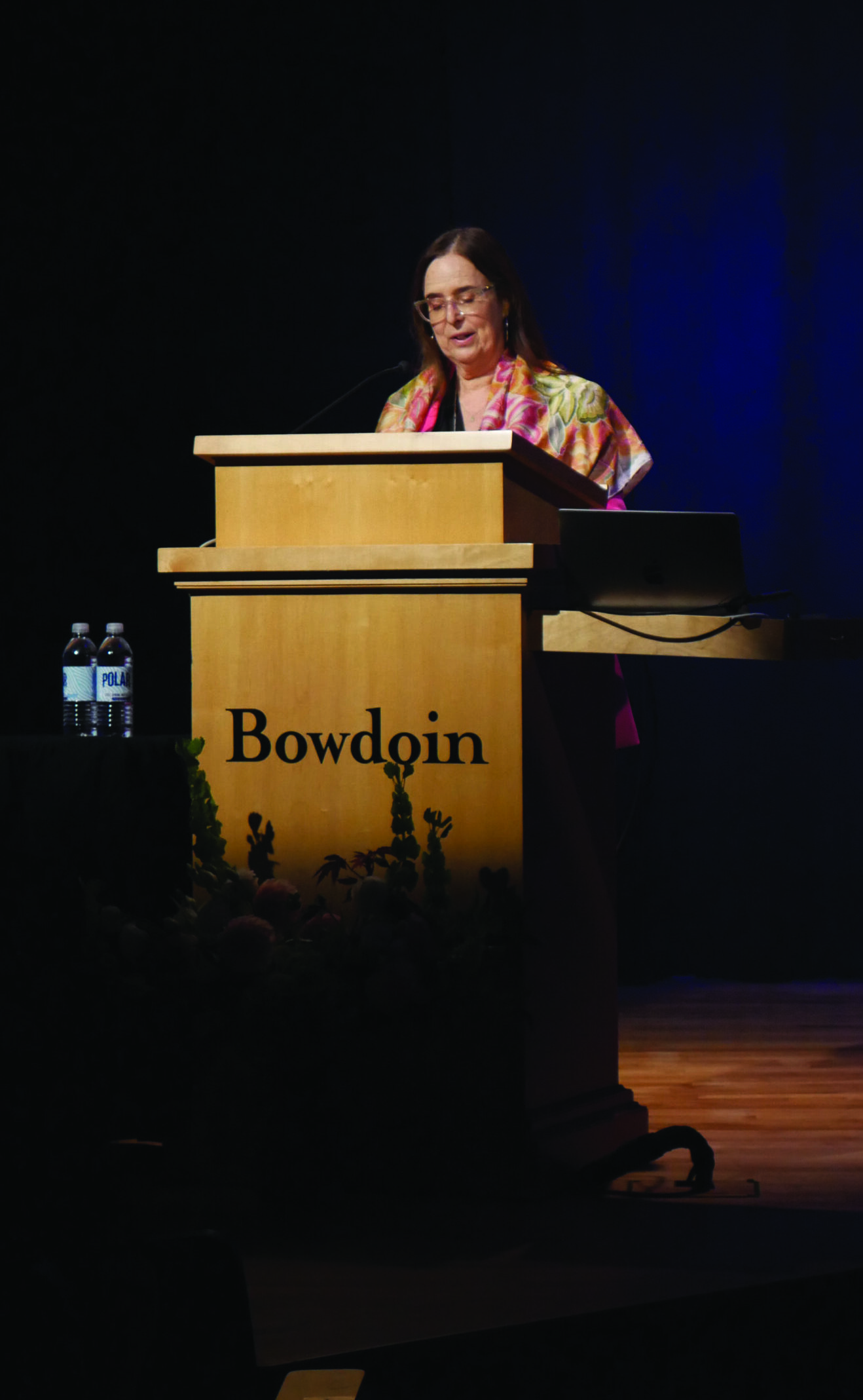Ruth Behar speaks on the search for “home” after the Jewish Latino diaspora
September 27, 2024
 Isa Cruz
Isa CruzOn Wednesday night, Ruth Behar, professor of anthropology at the University of Michigan, spoke in Kresge Auditorium of her experience navigating her exilic Jewish Latina identity.
Behar began by chronicling the history of her lineage as she described the cultural and religious integration of her identity as a Jewish Cuban woman. Her mother’s family was of Ashkenazi Jewish descent and hailed from Poland and Russia; her father’s lineage was of Sephardic Jewish descent, coming from Turkey and speaking Yiddish.
“The different Jewish enclaves with their unique languages and cultures and cuisines remain so separate from each other that people called my parent’s union an intermarriage,” Behar said.
Despite these differences, the trajectories of Behar’s two families converged as they found themselves amongst a vibrant Jewish community in Cuba around the 1940s and 1950s. However, by the end of 1961, there was a mass exodus of this Jewish community as they left Cuba in fear that they would no longer be able to practice Judaism.
“My parents became exiles, just like my grandparents before them, and we became part of a diaspora, carrying with us a lost Poland, a lost Russia, a lost Turkey and a lost Cuba,” Behar said.
Through the constant displacements and sudden interruptions of her childhood, Behar felt unsure of where she belonged and where she could call her true home. These challenges molded her to become more resilient as she reflected on how her Jewish Latina identity has made possible transformative moments of connection and vulnerability with strangers. Behar saw this personal reflection as a catalyst for her pursuit of anthropology as a profession.
“What drew me to anthropology was the idea of reenacting exile, going to places where I would be a stranger and need to place my trust in a stranger’s hands,” Behar said.
Behar recounted her journeys to Spain, Mexico and Cuba, discussing how valuable each of these destinations was for her.
“To travel as an anthropologist has been a gift. Building trust so others let you into their lives has taught me about empathy and vulnerability to look beyond myself and see into the hearts of others and care for their destinies and dreams,” Behar said.
However, as she made her way back to Cuba against the will of her parents, she found it painful to turn her back on her family in choosing to visit the island they had fled in fear. Initially, this guilt had made it difficult for Behar to conduct fieldwork in Cuba, so she took this time to write poems, personal essays and stories. Behar wrote about the sea, love, loss, mortality and her journey back to the country where her childhood was interrupted.
“Though my parents worried about me [when] I went to Cuba, they were glad I could tell the stories of the Jews on the island, who struggled to live with dignity and to maintain their faith and heritage against all odds,” Behar said.
Behar’s journey is not over. She now writes fiction for young people, basing the stories on her family history. Through fiction, Behar said she is able to embellish her reflection of the past to make it sweeter than it had been. She hopes her books and anthropological journeys reveal how Jews have lived and belonged in many places.
“More than ever, I believe it is crucial to make space for multiple geographies of Jewish thought … as Jewishness is now debated, interrogated and redefined from within and without,” Behar said.
Margaret Boyle, associate professor of romance languages and literature, organized this lecture and also emphasized the importance of embracing multitudinous amongst the Jewish Latino diaspora. She stresses that there are so many versions of being Jewish that it’s difficult to pinpoint just one aspect that encompasses the Jewish Latino experience.
“The kind of fusion and adaptability and the mix of languages … is so beautiful,” Boyle said.
Attendee Andy Brown expressed how unique and different every person’s experience is with cultural displacement and the perception of self-identity.
“I am an anthropologist myself, and [the lecture] is just a reminder of how complicated our world is and how everyone’s life is so fascinating in their own ways,” Brown said.
Behar concluded the lecture by describing her unused piano—decorated with family photographs and personal knickknacks—as a symbol of what she now classifies as home.
“The piano waits for me at the end of all my journeys, real and fictional, telling me I am home,” Behar said.

Comments
Before submitting a comment, please review our comment policy. Some key points from the policy: